Wellness Club — Thyroid Awareness Month
Abingdon, VA. -
Friday, Jan 1, 2021.
Written by: Anna L. Lyall, PharmD, Clinical Health Coach
The American Thyroid Association (ATA) stated that an estimated 20 million Americans have some form of thyroid disease and 60% of those with thyroid disease are unaware of their condition.
Thyroid Overview:
The thyroid gland is a butterfly-shaped organ situated near the lower front of the neck that measures about 2 inches across. The thyroid gland synthesizes and releases two main thyroid hormones known as T3 and T4, thyroid hormones are secreted into the blood and then carried to every tissue in the body. Thyroid hormones affect metabolism, brain development, respiration, cardiac and nervous system functions, body temperature, muscle strength, skin dryness, menstrual cycles, body weight, and cholesterol levels. Thyroid hormone production is regulated by thyroid-stimulating hormone, TSH which is secreted by the pituitary gland in the brain.
Hypothyroidism:
Hyperthyroidism (overactive thyroid) occurs when your thyroid gland produces too much of the hormone thyroxine. Hyperthyroidism can accelerate your body's metabolism, causing unintentional weight loss and a rapid or irregular heartbeat.
• Symptoms: Unintentional weight loss, even when your appetite and food intake stay the same or increase, rapid heartbeat (tachycardia), irregular heartbeat (arrhythmia), pounding of your heart (palpitations), increased appetite, nervousness, anxiety and irritability, tremor, sweating, changes in menstrual patterns, increased sensitivity to heat, changes in bowel patterns, especially more frequent bowel movements, an enlarged thyroid gland (goiter), fatigue, muscle weakness, difficulty sleeping, skin thinning, fine brittle hair
• Risk Factors: Female gender, family history, particularly of Graves' disease, personal history of certain chronic illnesses such as type 1 diabetes, pernicious anemia and primary adrenal insufficiency.
Hyperthyroidism can lead to several health problems like brittle bones and eye problems. Hyperthyroidism can also cause rapid heart rate known as atrial fibrillation. In addition, hyperthyroidism can cause thyrotoxic crisis which can lead to fever, a rapid pulse, and even delirium. Thyrotoxic crisis requires immediate medical care.
Hyperthyroidism Treatment:
The appropriate choice of treatment will be influenced by your age, the type of hyperthyroidism that you have, the severity of your hyperthyroidism, other medical conditions that may be affecting your health, and your own preference. It may be a good idea to consult with an endocrinologist who is experienced in the treatment of hyperthyroid patients. If your provider decides to treat the overactive thyroid with medication that blocks the thyroid glands’s ability to make new thyroid hormone, antithyroid agents like methimazole or in rare instances propylthiouracil (PTU) may be prescribed. Methimazole is presently the preferred medication due to less severe side-effects. These drugs work well to control the overactive thyroid, and do not cause permanent damage to the thyroid gland. Provider may use these medications long term, short term, or for preparation of radioiodine treatment or surgery. Antithyroid drugs cause allergic reactions in about 5% of patients who take them, other rare but serious side effects may also occur.
Interpreting Lab Values:
The best way to initially test thyroid function is to measure the TSH level in a blood sample. Changes in TSH can serve as an “early warning system” – often occurring before the actual level of thyroid hormones in the body becomes too high or too low. A high TSH level indicates that the thyroid gland is not making enough thyroid hormone (primary hypothyroidism). The opposite situation, in which the TSH level is low, usually indicates that the thyroid is producing too much thyroid hormone (hyperthyroidism). Tests measuring the hormone free T4 more accurately reflect how the thyroid gland is functioning when checked with a TSH.
Screening every 5 years by measuring serum TSH is recommended for all men ≥ 65 and for all women ≥ 50. Screening is also recommended for all newborns and for pregnant women. For patients with risk factors for thyroid disease, the serum TSH should be checked more often. Because of the high incidence of hypothyroidism in older adults, screening on an annual basis is reasonable for those > age 70.
This newsletter is intended for information purposes, please speak with your health care provider concerning diagnosis and treatment.
References: “Thyroid Patient Information.” Adult Topics;, Content Source: American Thyroid Association, Accessed 15 December. 2020. https://www.thyroid.org/thyroid-information/
https://www.thyroid.org/media-main/press-room/
“Hypothyroidism/Hyperthyroidism.” Symptoms and Causes, Content Source: Mayo Clinic, 2020, Accessed 15 December. 2020
https://www.mayoclinic.org/diseases-conditions/hypothyroidism/symptoms-causes/syc-20350284
https://www.mayoclinic.org/diseases-conditions/hyperthyroidism/symptoms-causes/syc-20373659












